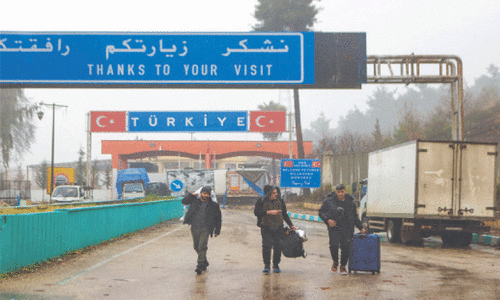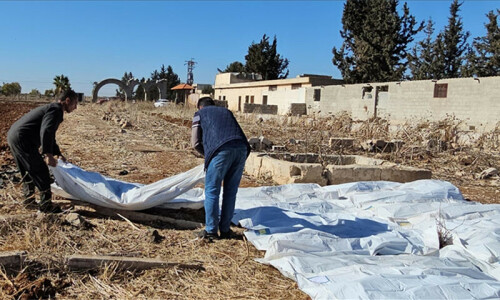VIENNA: Iran has complied with a key condition of ongoing nuclear talks by significantly reducing its stockpile of enriched uranium that could be used for atomic weapons, diplomats said on Tuesday.
Its failure to do so would have severely undermined the US and other powers trying to clinch a long-term nuclear accord with Tehran over the next several days.
The news came as the State Department announced the extension of an interim nuclear agreement that was set to expire on Tuesday night, the original deadline for a final deal.
The preliminary measures have been prolonged to July 7 “to allow more time for negotiations to reach a long-term solution ... on the Iran nuclear issue,” spokeswoman Marie Harf said.?
Uranium can be used to generate energy, or as the fissile core of a nuclear weapon, depending on its enrichment level.
Under a preliminary deal reached in November 2013, Iran agreed to cap its stockpile of lower-enriched uranium at a little more than 7.6 tons and transform any remainder into a form that experts say would be difficult to reconvert for arms use.
Although amounts were permitted to fluctuate, Iran had to fully comply by Tuesday. And as of only a month ago, the UN nuclear agency reported its stockpile at more than 8 tons, leading to fears that it would not meet the target.
Iran’s compliance will be officially made public on Wednesday in a new report by the Vienna-based International Atomic Energy Agency, the diplomats said. It will show that Tehran met the requirement to render harmless any additional uranium it has enriched over the last 20 months, thus taking its stockpile back to an acceptable level.
Talks in Austria’s capital restarted on Tuesday after a one-day interruption, with Iran’s chief diplomat returning from Tehran and insisting he had a mandate to finalize a nuclear agreement.
The promise came despite increased signs of backtracking by his country’s supreme leader and an acknowledgement by all sides that no pact would be reached by their self-imposed deadline.
The diplomacy has reached a “very sensitive stage” but progress is possible, Foreign Minister Mohammad Javad Zarif said. Asked by a reporter about his day of meetings at home, he said: “I already had a mandate to negotiate and I am here to get a final deal and I think we can.”
He then continued discussions with US Secretary of State John Kerry. Zarif returned with Ali Akbar Salehi, the head of Iran’s atomic agency, who had missed earlier sessions due to illness, an indication of Iran’s desire to accelerate talks.
Russian Foreign Minister Sergey Lavrov joined the gathering later on Tuesday.
The negotiators hope to clinch an accord curbing Iran’s nuclear programme for a decade in exchange for tens of billions of dollars in relief from international economic sanctions.
But significant disagreements persist, not least over the level of inspections on Iranian sites, how quickly the West will roll back sanctions, and what types of research and development Iran will be permitted to conduct on advanced nuclear technology.
Published in Dawn, July 1st, 2015
On a mobile phone? Get the Dawn Mobile App: Apple Store | Google Play















































Dear visitor, the comments section is undergoing an overhaul and will return soon.